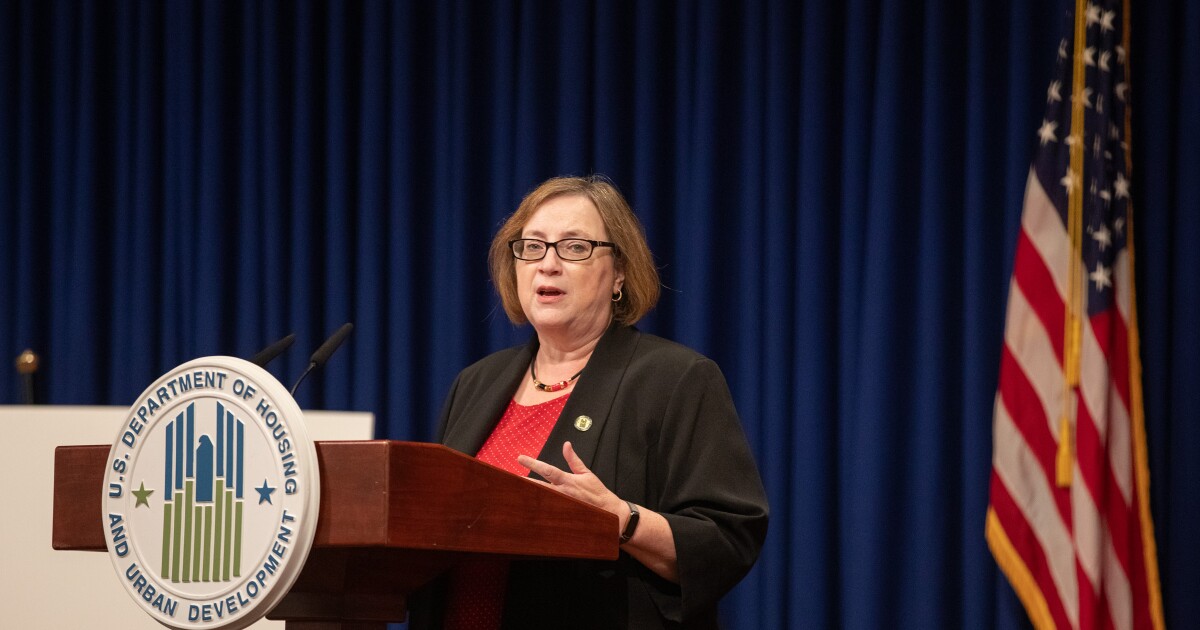
The Department of Housing and Urban Development has awarded $10 million in grants to 23 providers of
Even though Federal Housing Commissioner Julia Gordon made the June 17 announcement at the Harrisburg headquarters of the
The largest grant, at nearly $1.2 million, is going to the Neighborhood Stabilization Corp. of Massachusetts.
PHFA's single-family volume is "still going gangbusters this year," with record production possible in spite of higher interest rates, said Robin Weissmann, executive director and CEO at the event.
The program is doing well and much of that is a result of counseling, "because we want successful homeowners," Weissmann continued.
The current market conditions, including home prices, higher mortgage rates and the diminished supply of starter homes all make obtaining ownership more difficult and that is why counseling is needed, Gordon said during her speech at the event.
"Housing counseling agencies play a crucial role in reaching people who are often overlooked by the housing finance system," said Gordon.
She told her own story as well: even though she went to "fancy schools" for college and law school, Gordon's parents were not homeowners and she didn't know that someone could buy a house with less than a 20% down payment. She wasn't aware of a program like the Federal Housing Administration.
But, Gordon added, her future husband was able to purchase a home with the help of his parents and an FHA loan when he was 25. That gave them a head start in building equity and moving into a larger home when they started their family.
"This is why I feel so incredibly personally about the importance of housing counseling," she said.
Broad efforts to improve housing counseling have been made, including at the end of last year when
"We intend to make this initiative a model for the funding of future programs that can directly and effectively serve first-time homebuyers in underserved communities," said David Berenbaum, deputy assistant secretary for housing counseling. "New homeowners will have the benefit of both pre- and post-purchase housing counseling from a trusted advisor: the HUD Certified Housing Counselor."
On June 12, HUD published a final rule outlining housing counselor certification requirements for participants in the Indian Housing Block Grant and the Indian Community Development Block Grant programs.
The change should increase the number of HUD-certified counselors by removing impediments to participation by Tribes, Tribally Designated Housing Entities and other Tribal entities.
"After more than a year working with Tribes and Tribal Organizations on the proposed rule, HUD is proud to publish this final rule ensuring members of Tribal communities' access to crucial housing counseling services tailored to their specific needs," said Adrianne Todman, HUD acting secretary, in a press release. "We are committed to partnering with Tribes to increase equitable housing and support generational wealth building."
The rule creates a four-year transition period so Tribal grantees can ensure counselors get certified.
It also calls for study materials for the housing counselor certification examinations to be modified to include tailored content specific to Tribes.
HUD offers the
In March, HUD issued a final rule looking to update the Section 184 program.
Many properties on a reservation are on land held in trust, meaning they are owned by the U.S. government but held in trust for either the tribe or an individual. That makes them difficult to lend upon.
Gordon also spoke on June 18 at the Black Homeownership Collaborative third anniversary celebration for the 3by30 program. The goal is to create
The seven actionable steps to achieve this goal include homeownership counseling, along with down payment assistance, housing production, credit and lending, civil and consumer rights, homeownership sustainability, and marketing and outreach.
"At FHA, we are working to address the systemic barriers to homeownership that Black homebuyers face," Gordon is quoted in a National Housing Conference press release from the event. "The 3by30 initiative and the conversations being had today are crucial to closing the homeownership gap and expanding the wealth-building potential of homeownership to more Black families."



